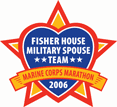Clinton NSA Eavesdropped on U.S. Calls
There is definitely a level of contradiction when it comes to the media’s attack on the Bush administration for wire-tapping people suspected of terrorist activities without a court order …
During the 1990's under President Clinton, the National Security Agency monitored millions of private phone calls placed by U.S. citizens and citizens of other countries under a super secret program code-named Echelon.
On Friday, the New York Times suggested that the Bush administration has instituted "a major shift in American intelligence-gathering practices" when it "secretly authorized the National Security Agency to eavesdrop on Americans and others inside the United States to search for evidence of terrorist activity without [obtaining] court-approved warrants."
But in fact, the NSA had been monitoring private domestic telephone conversations on a much larger scale throughout the 1990s - all of it done without a court order, let alone a catalyst like the 9/11 attacks.
In February 2000, for instance, CBS "60 Minutes" correspondent Steve Kroft introduced a report on the Clinton-era spy program by noting:
"If you made a phone call today or sent an e-mail to a friend, there's a good chance what you said or wrote was captured and screened by the country's largest intelligence agency. The top-secret Global Surveillance Network is called Echelon, and it's run by the National Security Agency."NSA computers, said Kroft, "capture virtually every electronic conversation around the world."
Echelon expert Mike Frost, who spent 20 years as a spy for the Canadian equivalent of the National Security Agency, told "60 Minutes" that the agency was monitoring "everything from data transfers to cell phones to portable phones to baby monitors to ATMs."
Mr. Frost detailed activities at one unidentified NSA installation, telling "60 Minutes" that agency operators "can listen in to just about anything" - while Echelon computers screen phone calls for key words that might indicate a terrorist threat.
The "60 Minutes" report also spotlighted Echelon critic, then-Rep. Bob Barr, who complained that the project as it was being implemented under Clinton "engages in the interception of literally millions of communications involving United States citizens."


























































<< Home